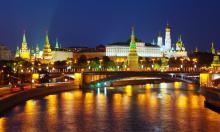Amazing peculiarities of national smiles
Governments may often worry about their national traditions to smile. For example, Thailand’s Ministry for Culture set out its concerns in 2003 claiming that the country’s citizens did not smile a lot to confirm Thailand ’s reputation of the country of smiles. Ministerial officials decided that such a state of affairs may result in a decrease of the number of tourists visiting the nation. The ministry eventually launched a campaign to increase the number of smiles in the country. “If you smile three times a day, then it means that you will have to smile six times a day from now on,” the announcement from the ministry said. Nevertheless, the results of the ‘smiling campaign’ were never exposed to the general public, and no one knows if that Thais began to smile more.

The government of Malaysia was concerned about another problem. State officials were not willing to smile and preferred to be rude with their visitors instead. Malaysia ’s Ministry for Culture decided to conduct another action: they sent 850,000 Malaysian officials to special courses to learn good manners.
The Chinese also had problems on the threshold of the Beijing Olympics in 2008. In addition to a great deal of other rules, they were supposed to quickly learn how to smile to strangers in the streets, which is not a Chinese tradition at all.
It would never occur to anyone in the Russian authorities to issue any of such decrees. There were several experiments conducted among Russia’s major corporations, when the personnel had to display politeness to every client. The example of McDonald’s (“a smile for free”) showed that such experiments would have no success: the people behind the counter do not smile at all there. Moreover, it is difficult to make the Russians smile, and there are serious reasons for it.
The Russians do not smile a lot. Foreign tourists could notice that 100, 30, 10 years ago, and they can notice it now too. An elderly Russian woman attacked an American tourist in the center of St. Petersburg (Leningrad) at the end of the 1980s yelling: “Why do you walk here smiling all the time?” This remark actually unveils the essence of the Russian smile.
As a rule, the Russians do not differentiate between smile and laughter. One may hear the following question in return to one single smile: “Did I say anything funny right now?”
The Russians only smile to the people they know. An American usually smiles when he or she meet someone else’s eye in the street. A Russian will revert the eyes: it is not considered a national tradition in Russia to smile to strangers. That is why many Russian sales assistants look so gloomy and impolite as if they say: “Whatdo you want from me? I don’t know you.”
The Russians say that only fools laugh for no reason. A laugh for no reason indicates a fool, they say. It is considered normal in Russia to smile for a reason, and other people surrounding you must be aware of this reason. If others do not seem to understand the reason behind your smile, they may perceive it as an action of mockery. “He knows something and doesn’t say a word about it, so he just mocks at us at the back of his mind,” this is exactly what many Russians may think in this case.
A historical and linguistic research conducted by I. Sternin said that a Russian person never smiles on duty or at work. Servants and waiters were always polite, but they could never allow themselves a smile. This old tradition is still alive. Many Russians returning from holidays in foreign countries cannot but notice the gloomy faces of customs officers working at airports. The officers may seem gloomy because they do serious business at work. The Russians do not smile at work - it is as simple as that.
A Russian smile is not used for communication. A Western smile is a signal of attention. “I am listening, I am all attention,” this is what a foreigner’s smile says. Wealthy Russians have a different attitude to smiling, though. The above-mentioned research said that a financial well-being is the most convincing argument for a smile. Those Russians who scrap and save and live from hand to mouth would say that they have nothing to smile about because they have so many problems to deal with.
To put it in a nutshell, a Russian smile is mostly a sincere smile, but it is never addressed to strangers.
On the other hand, a Western smile is not so simple as it may seem to be at first sight. It obviously makes communication easier, but it makes it difficult to understand other people’s true feelings and emotions.
Psychologists say that the effect of unaffected joy can only be produced with the help of the muscles which can hardly be toughened by the force of will. They are the greater zygomatic muscle and the orbicular eye muscles. The activity of the greater zygomatic muscle mirrors the level of subjective joy that a person demonstrates. The activity of other facial muscles, even those involved in smiling, does not correlate with the inner feeling of joy.
The sincere display of joy was dubbed as the Duchenne smile, in honor of Guillaume Duchenne, who was the first to conclude that a genuine smile must be morphologically different from all other smiles. A baby always gives genuine Duchenne smiles to his or her mother. Adults smile Duchenne smiles only when they watch or hear something funny.
Medportal
Subscribe to Pravda.Ru Telegram channel, Facebook, RSS!





